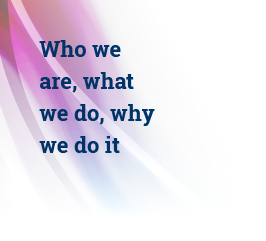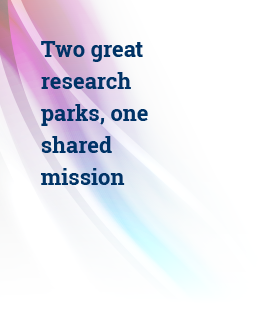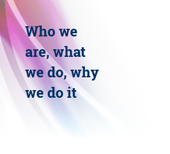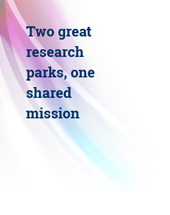Tucson Tech: New partnership forms pipeline of startups between UA agencies
Three startup companies have joined the fast-growing University of Arizona Center for Innovation, in what is hoped will become a new pipeline of startups to the business incubator from the UA’s new entrepreneurial hub, Arizona Forge.
The startups, Obánj, Metfora and Dive Technologies, recently completed an advanced entrepreneurial program at Forge (Finding Opportunities & Resources to Grow Entrepreneurs) in its inaugural year and have joined UACI as part of a pilot program leaders hope will continue into the future.
All three companies have ties to the UA:
- Obánj, which has launched a rental service for high-end jewelry on a monthly subscription basis, was founded by UA alumna Melissa Kiguwa.
- Metfora LLC is developing a simple blood test using artificial intelligence-assisted metabolic analysis for early diagnosis of various chronic diseases, based on the work of co-founders and UA medical faculty members Ruslan Rafikov and Dr. Olga Rafikova and research colleague Alex Borovinskiy.
- Dive has developed a software platform using advanced technology to seamlessly curate, structure and share information. Company founders are Daniel Frost, a student in the UA Eller College of Management, and Sahand Sabet, a Ph.D. candidate in mechanical engineering at the UA.
The three companies were part of Forge’s third cohort of startup founders and the first to win entry into UACI. The first two cohorts peer-selected picks to join Forge’s resident startup accelerator program.
Arizona Forge founding director Brian Ellerman said the partnership with UACI will benefit both organizations, adding that he hopes the pilot will become an ongoing program.
“As we looked at it, we realized a lot of these folks need the incubation services and structure UACI provides,” Ellerman said. “It became clear that this could be a really great way to connect and fill in a significant gap in the ecosystem that exists between those early-stage startups and how they ready themselves to be in a really robust program like UACI.”
Eric Smith, executive director of UACI, said the three companies represent a “trifecta” of the local entrepreneurial ecosystem: a “go-getter” community entrepreneur in Obánj’s Kiguwa; a startup spun out of UA research labs in Metfora, and the student-driven Dive, whose founders are completing the program at the UA’s McGuire Center for Entrepreneurship.
“If you think about where these three startups came from, it’s a great representation of our university and Tucson-based community,” Smith said, adding it also shows how the UA gives local entrepreneurs a “continuum” of support.
FORGING AHEAD
Kiguwa said the Forge program was instrumental in helping her prepare for pre-seed stage venture capital investment and helped her zero in on key performance indicators valued by investors, while Olga Bartnicki, one of two Forge executives-in-residence, provided strong mentorship.
“Any support is so welcome — it’s a tough thing to do, especially during a pandemic,” she said of starting her business. “It’s a very big deal, having that support is crucial.”
Obánj is the first startup attempt for Kiguwa, who got her bachelor’s degree in political science from the UA in 2010 before earning a master’s degree from the London School of Economics.
Born in London, where her mother was an immigrant from Uganda, Kiguwa lived in Massachusetts and Oregon before moving to Arizona and attending high school in Florence and Chandler. After getting her UA degree, she worked as a freelance journalist in East Africa, South America and China before returning to London to earn her master’s degree.
Deciding a media career wasn’t for her, she moved to Hollywood and worked in the entertainment industry for a time.
Kiguwa developed the idea for Obánj from her interest in fashion and sustainability, noting that the fashion industry is one if the biggest sources of pollution in the world.
“I would really like to bite into this really big issue around fashion, women’s beauty, sustainability,” she said. “The convergence of all those things, I’ve always had my eye on, and I thought, why not take the leap and do it.”
Obánj is already up and running online after a soft opening in November, renting out high-end jewelry from the famous fashion houses like Dior, Burberry, Gucci and Oscar de la Renta as well as top artisan designers, with many pieces retailing for $600 and up.
COPING WITH COVID-19
It’s been a challenging year for Arizona Forge, which was readying its grand opening at a renovated Roy Place Building downtown in February 2020 when COVID-19 struck.
But the organization persevered, adapting its programs to the virtual world to safely mentor and graduate three cohorts of local startups.
“We had to do a massive pivot with our summer cohort ... virtualizing something that was designed to be completely done in person,” Ellerman said, noting that Forge was designed as very much a community-based startup accelerator.
Aside from graduating three cohorts of startups, Forge made progress on several other fronts, launching Forge at UA, focused on encouraging and nurturing entrepreneurship among UA students and partnering with the College of Engineering on a student challenge to improve remote-working environments.
REACHING OUT
The addition of the three Forge companies helped push the UACI’s client roster to 44 — an all-time high and more than double the number on the roster last year, Smith said.
The center has grown by broadening its scope and its reach, with incubation “outposts” in Sahuarita and Oro Valley and by mid-fall, at The Refinery, a new, four-story office building under construction at The Bridges at 36th Street and Kino Parkway.
“We’re really coming together as a community when it comes to entrepreneurship, even in the wake of the pandemic, there is more activity than there ever has been,” he said, adding that the center is actively engaged with some 75 startup companies to get them ready for their incubation stage.
The UACI is also using its virtual tools to extend its reach beyond Southern Arizona, Smith noted.
Nanomoneo, a biotech startup backed by investors in Nevada, joined the UACI last fall, moving here after a multi-state search.
Mango People, a Los Angeles-based startup marketing naturally derived beauty products, also took up residence at UACI last year, and the center plans to announce a new member startup from Pittsburgh, Smith said.
“Those companies move here, or at least they look at Southern Arizona as a resource for them,” he said. “When they move, they hire people, attract capital, things like that.”
Read the Original Arizona Daily Star, Tucson Tech Article by David Wichner Here















